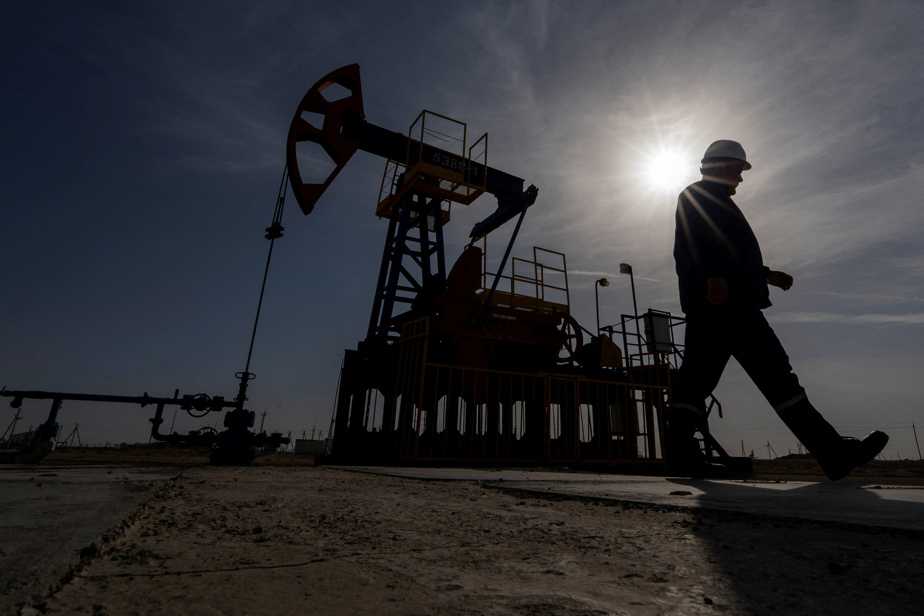(London) Oil prices were down slightly on Thursday, weighed down by the expectations of certain investors who fear seeing demand for black gold undermined next year by an economic recession and increased supply.
Around 7:05 a.m., the price of a barrel of North Sea Brent for delivery in February fell 0.36% to $79.41.
Its American equivalent, a barrel of West Texas Intermediate (WTI) for delivery the same month, lost 0.35%, to $73.96.
The decline in prices which has continued for several months signals, according to some analysts, the fear of a “global recession” next year, indicates Russ Mold of AJ Bell, which would crush demand for black gold.
In this regard, investors were waiting before the publication of several US economic data on Thursday, including the latest estimate of US GDP for the third quarter.
The PCE index for November in the United States, an inflation barometer particularly scrutinized by the American Federal Reserve (Fed), is scheduled for Friday.
The latest drop in oil prices can also be attributed “to record hydrocarbon production in the United States, driven primarily by a resurgence in production from its shale fields” in several states, DNB analysts add.
According to the U.S. Energy Information Administration (EIA), during the week ended December 15, crude oil inventories swelled by 2.9 million barrels, while analysts had forecast a decline of almost that much.
Gasoline inventories also rose by 2.7 million barrels, far more than the expected 1.35 million barrel increase.
According to the Energy Information Administration, U.S. oil production reached a record 13.2 million barrels per day, nine million of which came from shale.
At the start of the session, “the continued escalation of geopolitical risk in the Middle East” had supported oil prices, note DNB analysts.
On Wednesday, the leader of the Yemeni rebels, Abdel Malek al-Houthi, threatened to retaliate in the event of an American strike against Yemen, after Washington’s announcement of the formation in the Red Sea of a coalition to face the attacks rebels against ships.
Greece is the eleventh country to join this maritime protection force, alongside the United States, France, the United Kingdom and Bahrain.
Furthermore, the countries of the coalition which caps the prices of Russian oil, in retaliation for its invasion of Ukraine, announced on Wednesday that they were tightening the rules of this system.
The price cap mechanism requires Russia to sell its oil at no more than $60 per barrel to coalition members – Australia, Canada, the European Union, France, Germany, Italy, Japan, the United Kingdom and the United States.
Insurers and reinsurers are therefore prohibited from covering the maritime transport of Russian oil, unless it is sold at a price lower than that of the ceiling.
This cap aims to reduce Russia’s capacity to finance the war in Ukraine.
